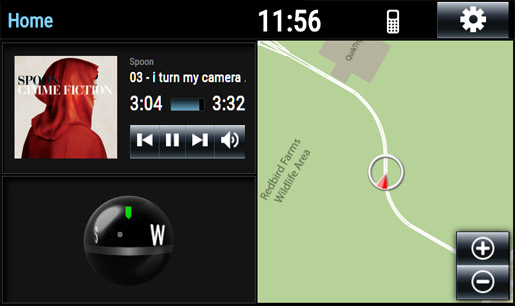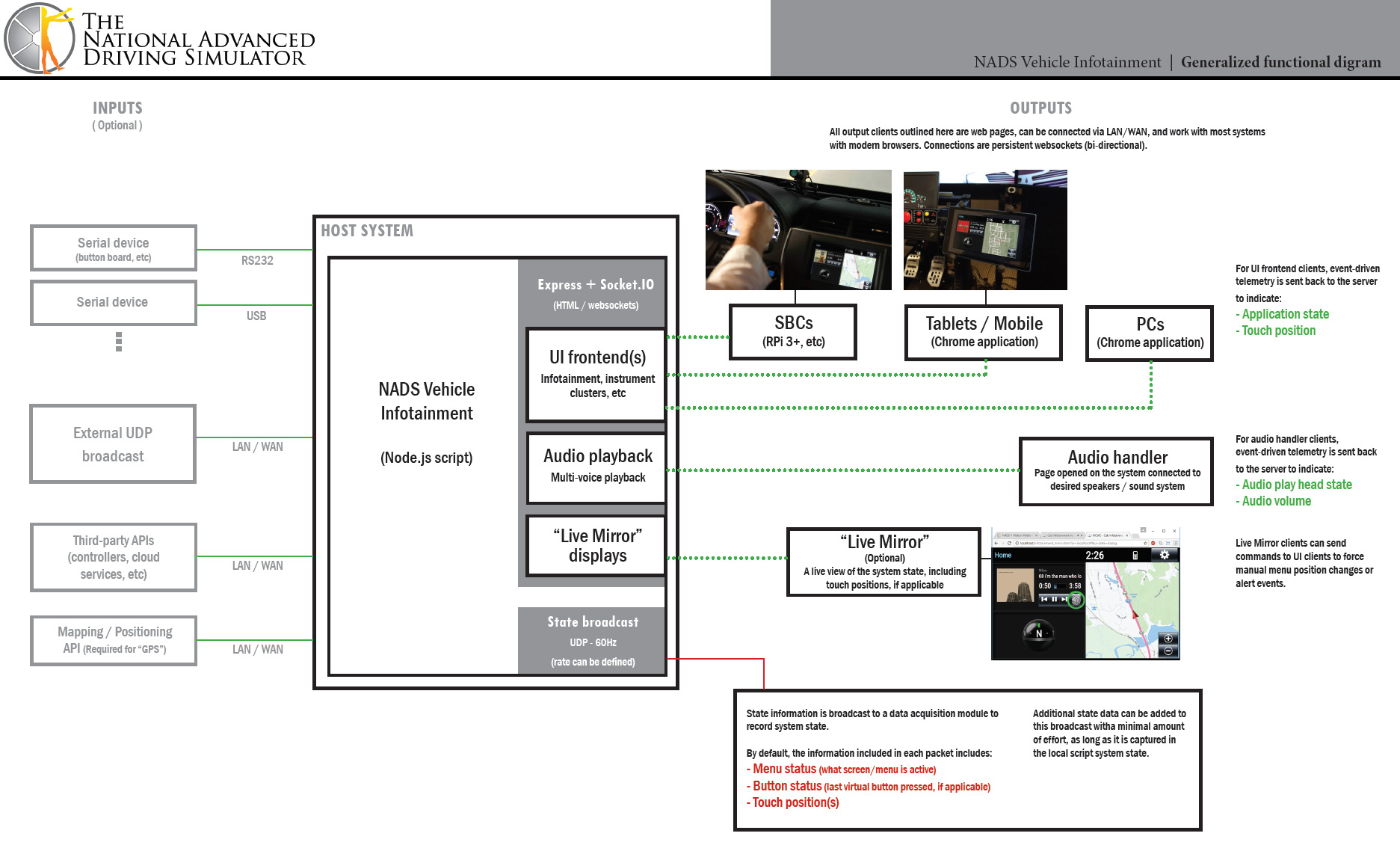Difference between revisions of "Infotainment System"
Steve Cable (Talk | contribs) |
Steve Cable (Talk | contribs) (→Architecture) |
||
| Line 26: | Line 26: | ||
== Architecture == | == Architecture == | ||
At it's core, the Infotainment System can be logically broken down into three parts: the host script, the audio handler(s), and display/input pages. | At it's core, the Infotainment System can be logically broken down into three parts: the host script, the audio handler(s), and display/input pages. | ||
| + | |||
| + | === Host script === | ||
| + | This is blah blah | ||
| + | |||
| + | === Audio handler(s) === | ||
| + | By default, a single audio page is included. This page can handle 3 channels of stereo playback: | ||
=== Host script === | === Host script === | ||
This is blah blah | This is blah blah | ||
Revision as of 22:23, 23 May 2019


Applications include infotainment systems and instrument panel displays. The standard system available with miniSim models a typical OEM infotainment system including the following functionality:
- Radio (requires internet connection)
- MP3 playback
- Navigation (NADS Springfield map only)
- Platform Independent (iOS, Android, Windows, Raspberry Pi)
Architecture
At it's core, the Infotainment System can be logically broken down into three parts: the host script, the audio handler(s), and display/input pages.
Host script
This is blah blah
Audio handler(s)
By default, a single audio page is included. This page can handle 3 channels of stereo playback:
Host script
This is blah blah







